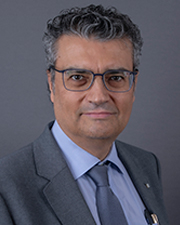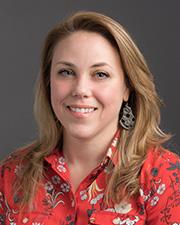Trio aides Spain after massive floods

Cesar Soutullo, MD, PhD, John S. Dunn Professor and Vice Chair and Chief of Child & Adolescent Psychiatry; Leslie Taylor, PhD, associate professor in the Louis A. Faillace, MD, Department of Psychiatry and Behavioral Sciences; and Sarly Butte, LPC, director of adult services, and other members of the UTHealth Houston Trauma and Resilience Center (TRC) staff have been delivering on-line training to mental health providers in Spain after the massive flash flood in late October 2024.
This flood devastated Valencia, the third most populous city in Spain and other areas with a population of affected victims of about 190,000 people and resulted in more than 235 deaths and thousands displaced or homeless.

Soutullo, a native of Spain, was contacted by some of his colleagues from Valencia, saying they were overwhelmed in their clinics in the aftermath of the flood. The Spanish colleagues requested help to get protocols and specific training on how to help properly screen, triage, and treat these victims exposed to such devastation.
The Trauma Research Center sprang into action and started providing online training twice a week to the psychiatry and psychology teams in Spain. The focus was centered around one of the main hospitals near the flooded area, the Doctor Peset University Hospital.
The hospital’s department of psychiatry contacted their state mental health authority, and conducted a three-day, in-person meeting in early March. Taylor and Butte delivered trauma-based cognitive behavioral therapy seminars. Soutullo also gave a lecture on the psychopharmacology of depression and anxiety in children and adolescents.

More than 60 people attended in person and another 80 virtually, coming from different community mental health clinics across the three provinces of Valencia, Alicante, and Castellon (an estimated population of 5.4 million) in a region 225 miles long on the East Coast of Spain.
Soutullo and the rest of the team were happy to be there and help their colleagues.
“The help that the TRC professionals provided to these colleagues was invaluable to start the recovery process, and they were very thankful that we could be there in person too,” Soutullo said. “There will be other in-person sessions depending on need and also some potential research opportunities if we can gather data on the actions we took, and the impact of this help.”